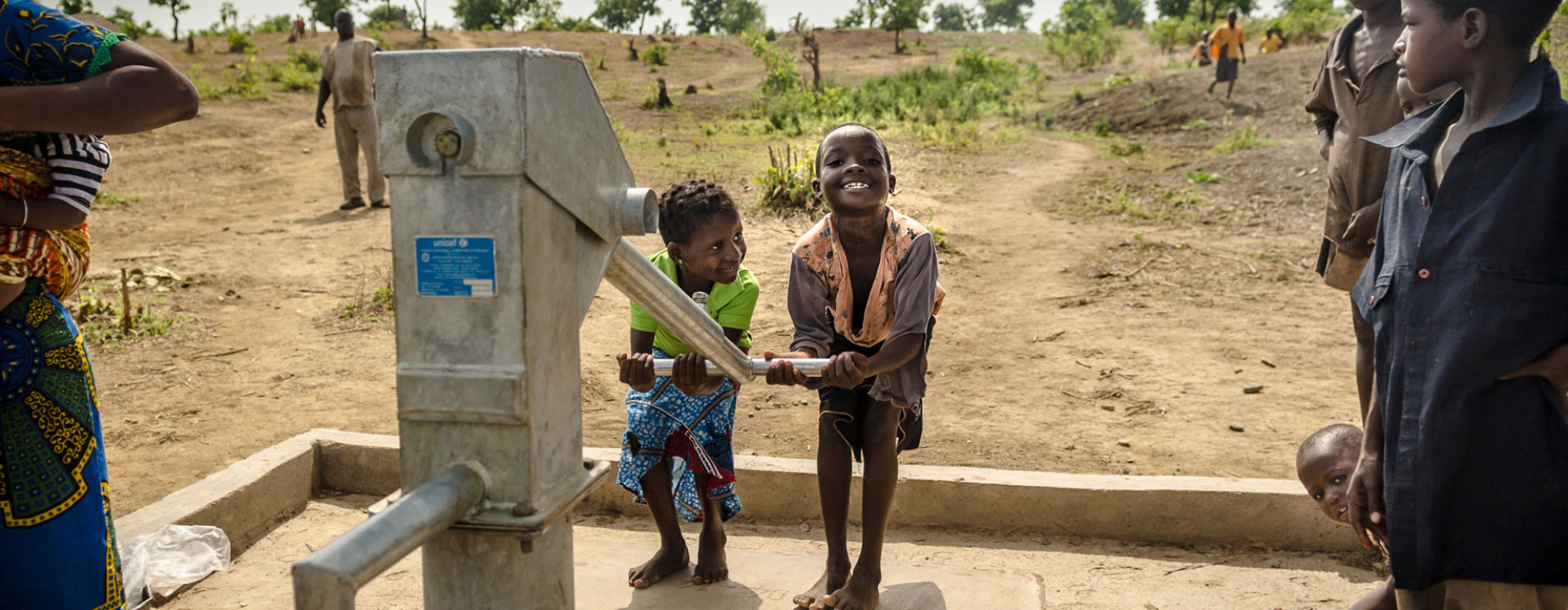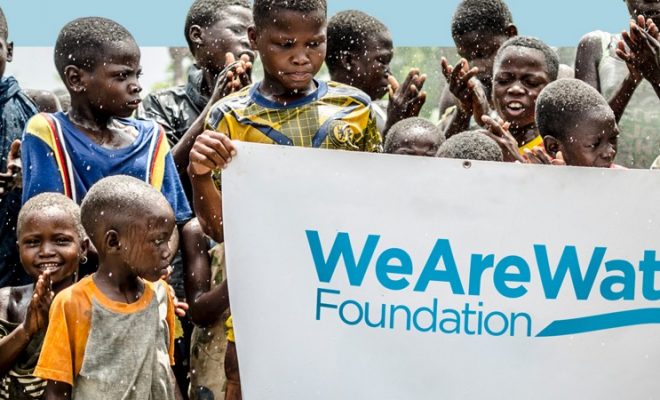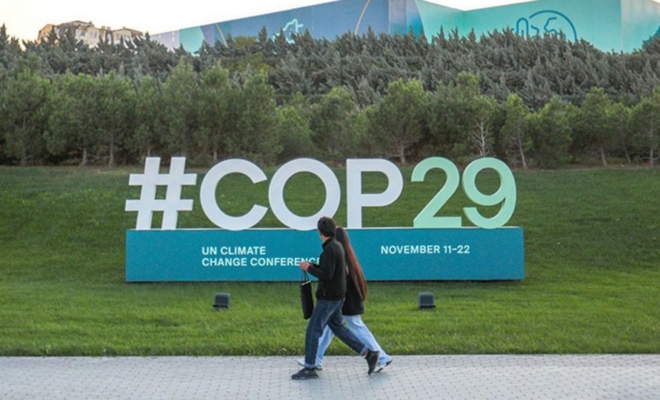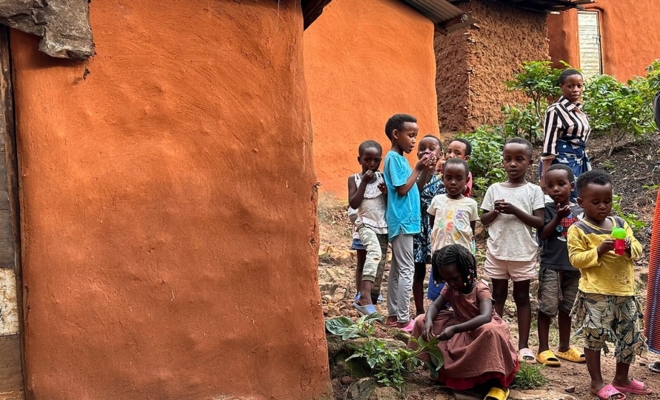The climate crisis is increasing the unpredictability of hydrological cycles, while extreme droughts and torrential rains are becoming more frequent. Moreover, cultural and geopolitical factors are altering the needs for water access and the solutions to meet them. Constant reflection on where and how to act effectively is essential.
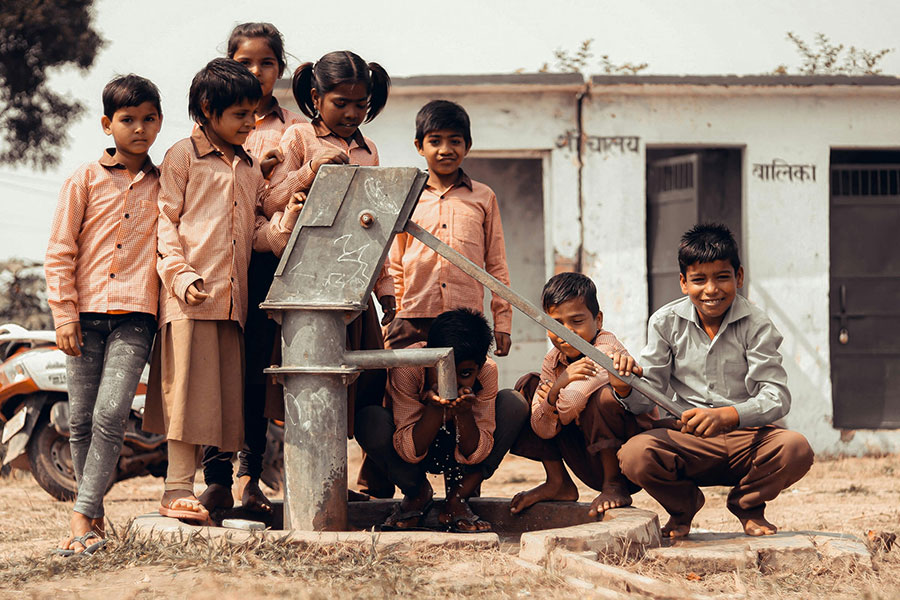
The water and sanitation challenge is intensifying, and we are direct witnesses to it. © Ritesh Arya / pexels
107 Projects in 40 Countries: Experience and Practicality
The conclusions of COP 29 debates reaffirm the urgent need to accelerate progress toward SDG 6. Experts highlight two priority areas: empowering vulnerable farming communities to manage their water resources and ensuring school access to water, sanitation, and hygiene (WASH).
Our experience has provided us with a broad perspective on the evolving needs of almost every region of the world during a period of notable climate and social change: over 14 years, we have implemented 107 projects in 40 countries, benefiting over four million people. Each of them offers valuable lessons.
Knowledge and Management Skills for Small-Scale Farmers
We have witnessed how water stress and scarcity hit the most neglected rural areas hardest. Many small farming communities face growing hunger, forcing them to migrate to other regions or urban areas, causing serious demographic and economic imbalances.
Although water access issues in rural communities share many common traits, the evolution of water stress manifests differently in each case. This highlights a key priority: deepening knowledge of both climatic and geological water cycles and equipping people with the capacity to manage resources in the face of droughts.
This year, we completed a project in Kwedizinga, a village in Tanzania, which we consider a paradigm. Prolonged droughts had pushed 4,000 farmers to the brink of survival due to the progressive degradation of two small ponds that served as their water sources for domestic use, livestock, and irrigation. The villagers had little knowledge of hydrology, so the first step was to involve them in a groundwater study and teach them how the geological water cycle connects their ponds to underground reserves. Then, their active participation in digging a well and installing a solar-powered distribution system reinforced their sense of community ownership over the infrastructure.
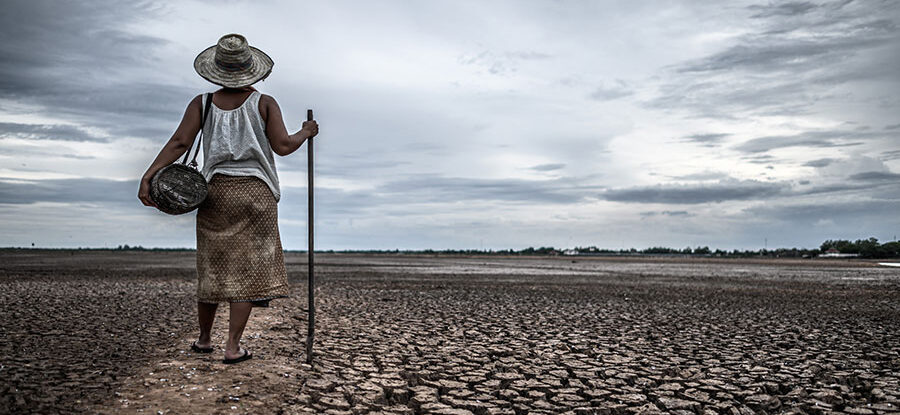
We have witnessed how water stress and scarcity hit the most neglected rural areas hardest. © Freepick
Knowledge and Participation: The Foundations of Success
From there, training the community in efficient water management has been much more effective, as the water cycle is now an integral part of their lives. Actions, like regularly cleaning the ponds and using water rationally for irrigation, have become daily practices that consolidate the essential ownership of the facilities.
Our experience in Tanzania builds on the lessons we have learned on a slightly larger scale in India with small reservoirs. These infrastructures are being developed in many drylands to regenerate aquifers, curb overexploitation, control harmful runoff, and provide farmers with a source of empowerment.
It is a universal truth that knowledge management is a prerequisite for achieving balanced territorial development, reducing forced migration, and fostering new contexts for water and hygiene cultures.
In Central America, Mexico, Brazil, Indonesia, and Sub-Saharan Africa, we have reaffirmed this conclusion: knowledge and self-management skills are key to halting the socio-economic and environmental imbalances caused by impoverished farming communities. By 2025, we must accelerate and end the paradox of the resource: there is enough water, but there is a lack of knowledge to access it and manage it sustainably.
Education, the Greatest Need
Our interventions in schools have shown how the endemic lack of adequate water, sanitation, and hygiene facilities is a critical obstacle to education that urgently needs to be addressed. We must advance toward humanity’s most important asset, SDG 4, ensuring inclusive, equitable, and quality education—the best community resilience and empowerment tool.
As we have always maintained, the school experience must be a reference that students can return to their homes. Schools need safe drinking water, secure latrines, and sufficient handwashing stations with soap and clean towels to achieve an authentic hygiene culture.
Specifically, adapting these facilities to the needs of menstruating girls is the first step toward cultural change among their peers, families, and communities. A project we recently completed in Malawi provides a model of reference. Alongside delivering clean water and safe latrines, we designed specific facilities with incinerators for the eco-friendly disposal of menstrual products and spaces to wash and dry undergarments. These improvements were complemented by the distribution of essential supplies, teacher training, and community work to eliminate persistent taboos about menstruation.
This past year, we deepened the development of menstrual health management (MHM) labs, which are crucial for destigmatizing menstruation and improving female hygiene. Projects implemented in Sriperumbudur and Ranipet, India, confirmed the positive impact of these initiatives, becoming a replicable model to be expanded further.
Schools in refugee camps are another critical educational front that the world must urgently address. This year, we completed the construction of WASH facilities at a school in the Rwamwanja settlement in Uganda, where nearly half of the refugee population is of school age. For these families, educating their children is their only hope for progress as they face the uncertainty of potentially returning to their homes.
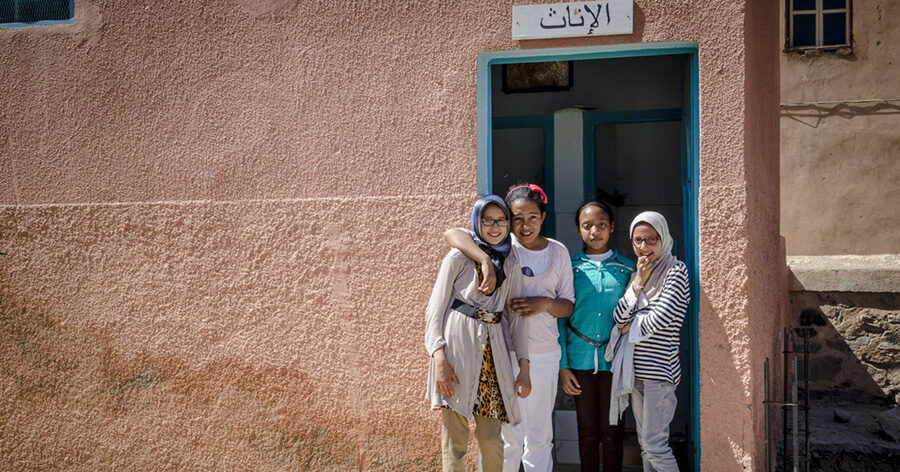
Adapting these facilities at schools to the needs of menstruating girls is the first step toward cultural change among their peers, families, and communities. Garriga /WAWF
Sharing Knowledge as Quickly as Possible
We live in a constantly transforming world, and these changes are accelerating. Over the past 14 years, we have closely followed scientific advancements and the indicators provided by the United Nations and NGOs we collaborate with. Our presence at global forums such as World Water Week—the most important water event—and the Drought Resilience +10 Conference—a key space for drought resilience discussions—has allowed us to share first-hand project experiences and initiatives while learning from leading experts.
We have also participated in the last three climate conferences: COP 27, COP 28, and COP 29. At COP 29 in Baku, we were core partners of the Water Pavilionand witnessed its reaffirmation that water is advancing as a climate priority. This encouraging conclusion also resonated at COP 16 on biodiversity.
2025 will be the year when COP 30 could offer a definitive opportunity to transform climate actions into tangible global results. We face a challenge that involves virtually all human activities and demands concrete and urgent responses.
Action must accelerate, and we will succeed if we cooperate. Cooperation is the key to overcoming ignorance and inertia in the face of crises. In a context of global complexity, collaboration is the only path to sustainable and resilient solutions.


